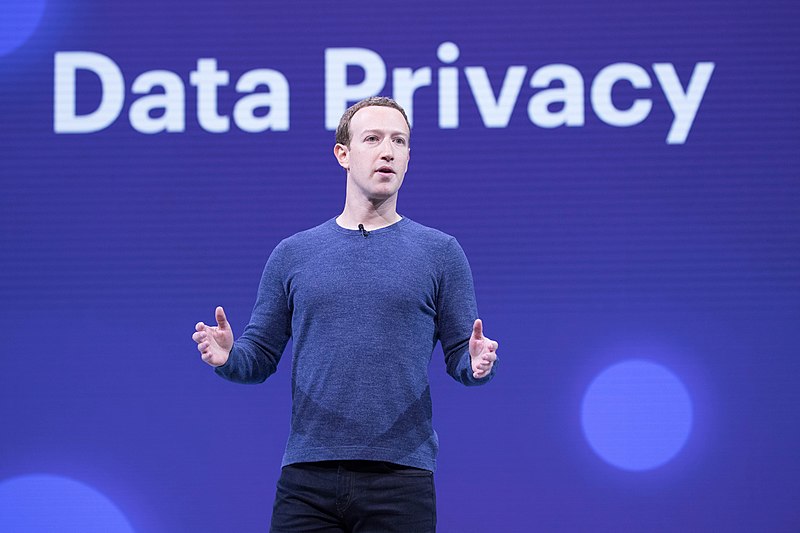Facebook Called Out Over Toxicity
October 21, 2021
In a series of reports issued by a former Facebook product manager, a host of problems and wrongdoings by one of the world’s biggest companies have been revealed.
The whistleblower, once under the alias of ‘Sean’, released thousands of documents outlining Facebook’s knowledge of its own toxicity. About two weeks ago, Sean revealed herself to be Frances Haugen. She worked for Facebook for two years before leaving earlier this year. Haugen said she was startled by the information she saw and decided to speak out about it.
According to Haugen, Facebook continually chooses money and profits over the well-being of its users. One particularly disturbing revelation was that Facebook is aware of how its platform was worsening the body image and self-esteem of teenage girls.
Research and other studies have been conducted by Instagram, which is owned by Facebook, to see the effects the app has on young women and other young users. The results were startling, but have not been made widely known and public until now. One study found that Instagram makes body image issues worse for 1 in every 3 teenage girls. To add, in a 2019 slide presentation after another study was done, results showed that teenagers suffering from mental illness blamed Instagram for making it worse.
In certain studies, it was found that the issues teenagers were facing on the app, including constant comparison to the attractiveness and wealth of other users, were at the base of what Instagram does. This means that other social media platforms, such as Snapchat, do not share those same mental health problems for their users.
Facebook does know about all of these problems, and even of increasing suicide rates traced back to Instagram, but has not taken action and has even downplayed the issue. When the company was questioned about the reasoning behind keeping such important information hidden, few genuine and honest answers were given.
Although the harms of social media are not entirely new, Instagram has long been a place of low self-esteem and diminished confidence. Constant celebrity photoshopping and the culture of only posting the very best, most edited pictures make Instagram a difficult place to be. Often, users are left to deal with figuring out whether the image they’ve seen of a model, for example, ought to be strived for or should be taken with a grain of salt.
Instagram is a known source of confidence issues and self-doubt, but the fact that Facebook knows about it, and has only discussed it rather than taking charge for change is concerning. Appealing and maintaining a younger generation of users may be important for profit, but money should not need to come at the expense of mental health and well-being amongst those young people.
In efforts to counteract this social issue, there is a version of Instagram in the works that is supposed to cater towards young people, but the results of Instagram’s toxicity has already caused a lot of damage to teenage girls, and should not be ignored or replaced with a “new and better” option.
To further show the impact of social media and social media officials, Facebook has been under controversy over and over again for the past few years. In 2018, CEO of Facebook Mark Zuckerberg went on trial over security concerns and the sharing of confidential user information with third-party sources.
Then, during the 2020 presidential election, Twitter took the risky step of banning Donald Trump’s tweets for misinformation after constantly flagging his tweets to be fact-checked. Facebook did not immediately follow suit, and the company claimed it did not have any way to enforce restrictions on Mr. Trump at the time, but as of June 4th, Trump’s account is banned for two years in the wake of his encouraging participants of the January 6th insurrection.
Essentially, Facebook has come under fire several times over the regulation of false and harmful information to its users. But that is not the only issue the company faces.
Young people across the country (and possibly the world) have labeled the app as being for ‘old people’. Very few teenagers consistently use Facebook, with the vast majority preferring to use Instagram, which is an extension of Facebook. So as the users of Facebook age, the company is faced with the challenge of drawing in new, younger users. This is likely the catalyst for Facebook being reluctant to face the music of the toxicity of Instagram.
Despite Facebook’s massive popularity and influence, if the future generations do not care about it or want to use it, the company risks becoming obsolete. In fact, research predicts that daily usage will decrease by 45% in less than two years. Instagram has become incredibly important in the social media realm, and fixing its features to be more teen-friendly could lead to fewer users.
Thanks to the whistleblower, many more deep-seated issues with Facebook and its other products will be aired out to the public, and hopefully, in the future, user information will be better protected, and mental health will improve as a result of changes to the company.






